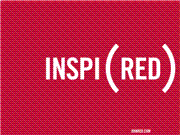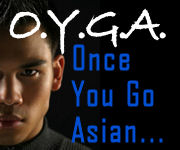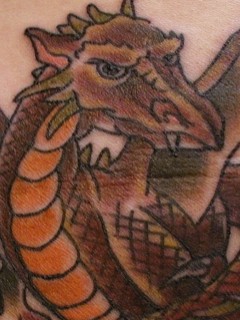
Today is World AIDS Day, and many others have spoken or will speak of it far more eloquently than I ever could. I do think it is wonderful that, each year, the tragedy that this disease has caused worldwide becomes more and more understood and responded to. Slowly, we see foolish assumptions and myths about HIV/AIDS fading away, as politicians, physicians, and the general public are realizing the importance of addressing the issue with compassion and honesty. I love how celebrities like Bono are choosing to leverage their popularity to accomplish great things in this realm. And a day like today is excellent for helping to increase public awareness, education, and compassion for those who live with HIV/AIDS.
But I also think today is important for a reason that those of us in the gay community are probably aware of more than most; that is, for those of us who are HIV-negative to remind our friends and family members who are living with HIV/AIDS of our love and support and total acceptance of them. I have known many people in my life with HIV/AIDS, having lived in West Africa where it was very prevalent, as well as knowing numerous HIV-positive friends and acquaintances here in the States. But it hit home more directly than ever this year, when within three months of each other, two people very close to me tested positive. Suddenly, it wasn't just acquaintances that I would see occasionally at a club or party; it was people who I would interact with regularly, people who I loved and looked to for help when I faced difficulties in life.
And, as my loved ones have progressed on their journies through this new challenge, I have been so happy to see them both moving from a very low place to paths of hope and happiness--anticipation of lives that will be full and satisfying, perhaps even more so than before, since they have faced a challenge that gives them an appreciation for life and health and love. And, I think that is a wonderful message for World AIDS Day... HIV/AIDS does not have the power to crush the human spirit or to fracture hope or to restrain love. It cannot suffocate laughter or silence creativity or shatter true friendship or stifle compassion.
Have you ever had a really bad day? One in which you just feel like your are overwhlemed by your circumstances? Where you are on the verge of tears or just want to hit a wall or scream into your pillow? But then, a friend or loved one comes into the room and, with a clever comment or well-timed joke totally diffuses the tension. I don't mean a careless joke that indicates your problems are not real nor important. But a gentle humor that communicates they love you and that they know you are going to make it through this trial. When this happens, at first you don't want to laugh, or even smile, because in a perverse way, we sometimes jealously hold on to anger or frustration. But when the laughter overcomes us, and we are forced to release the anger (since anger will not co-exist with laughter), we physically and emotionally feel that knot in our stomach begin to loosen and the load on our heart to lighten. It doesn't eliminate the problems we are facing, but it gives us the perspective to know we can make it through the valleys in life because we are loved.
Today's Holidays:
- World AIDS Day
- Day Without Art Day
- Bifocals at the Monitor Liberation Day (I don't know what it is, either)













2 comments:
Now I ask -- Does the gay community have any programs to combat the AIDS epidemic in Africa (or is the gay community a far looser construction than I believe)?
JMH,
Thanks for visiting my blog! I am open to correction if I am wrong about this, but I would suspect that there probably are not specifically "gay" programs for fighting the AIDS epidemic in Africa, simply because the tragedy of HIV/AIDS is not a "gay" problem. Obviously, it would be willful blindness to say that the "gay community" (an imperfect but functional grouping, since there is just as much variety within that group as there would be in the "straight community") has not been affected above and beyond many groups, but it would be short-sighted to think that the gay community should have their "own" programs for an epidemic that reaches into every ethnicity, class, gender, and orientation. I think, instead, you would find that the gay community is involved and active much more than the average in assisting and giving toward broad worldwide organizations that are fighting the spread of the disease and searching for its cure.
Post a Comment